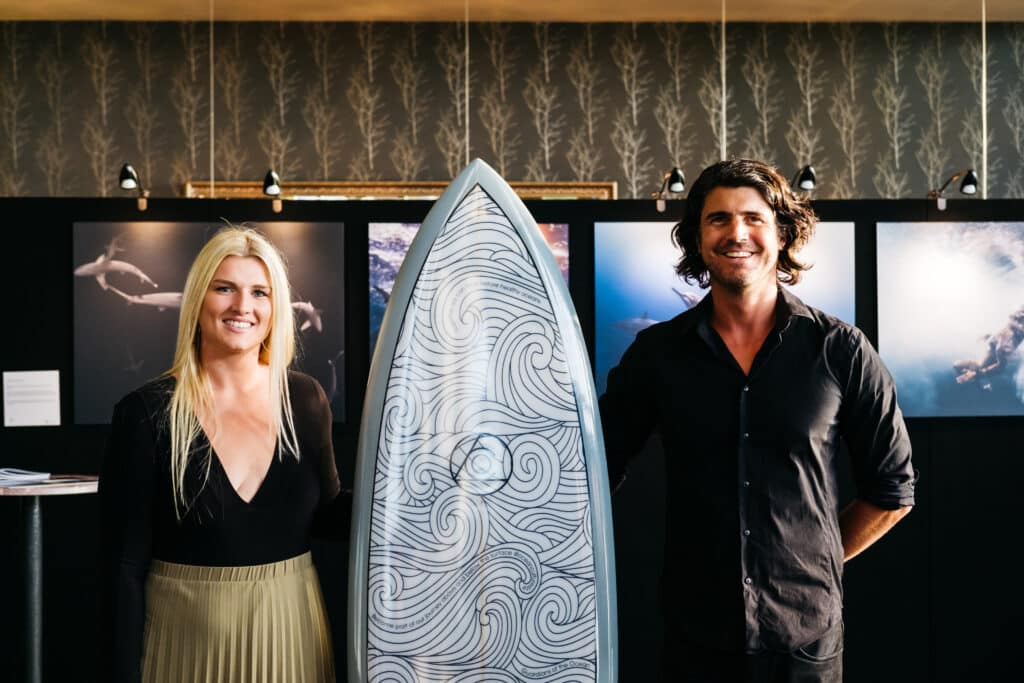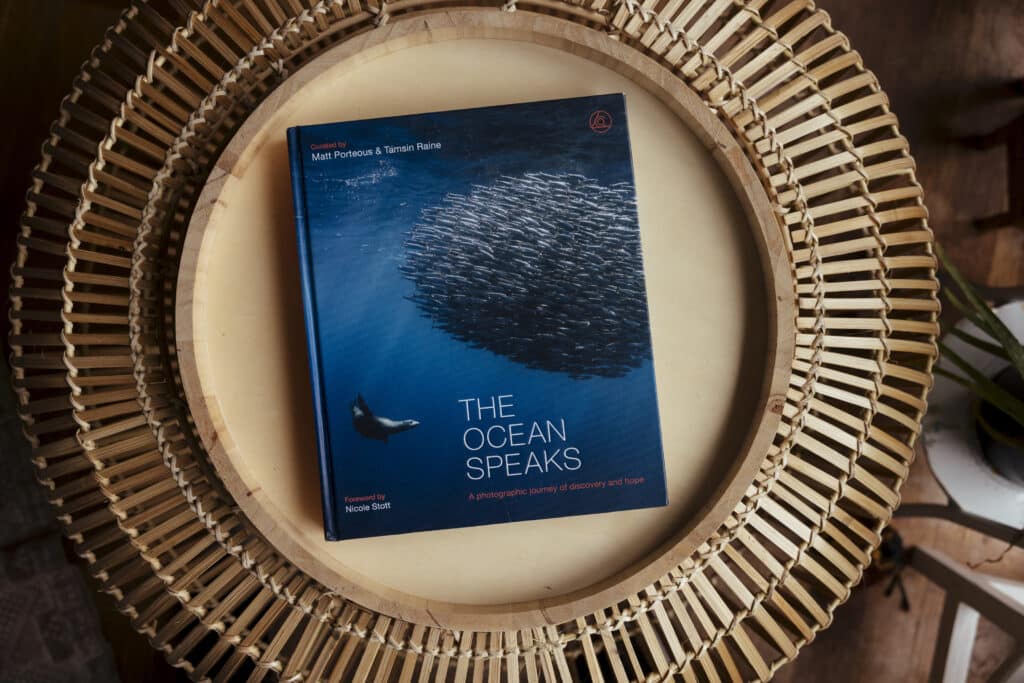
How to leverage storytelling to fight climate change
BY JOE ROWAN, August 22 2024
Ocean Culture Life is a thousands-strong global community fighting to protect our oceans. At THE HEAT, its leaders ran an interactive workshop on storytelling for impact, showcasing how to craft compelling mission-aligned narratives that resonate with audiences. Why? Because powerful storytelling is a key enabler of change.
The Ocean Culture Life (OCL) community is largely composed of ocean storytellers — artists, activists, writers, photographers and more. The network also encompasses “ocean guardians”, such as ocean conservation organisations and research scientists, as well as a large group of advocates — passionate ocean-lovers who want to share local stories.
OCL’s founder, Matt Porteous, and its CEO, Tamsin Raine, were both brought up on the island of Jersey, which might go some way in explaining their passion for the ocean. “Our weekends were spent at the beach, and we learned at a very young age the importance of community and looking after each other, and how much being in the ocean actually means to us, and how we need to protect it,” Porteous says. Storytelling came naturally: Porteous was a commercial and wedding photographer before founding OCL – becoming a favourite of William and Kate, the Prince and Princess of Wales – and Raine worked in advertising; both wanted to use their talents for storytelling to help the planet. “I was working with big brands and often felt really unaligned with the messaging behind the campaigns,” Raine recalls. “When I met Matt, I was like, ah, we can use our skill set to help give a voice to the ocean that doesn’t have an advertising budget.”


OCL has a storytelling grants programme, aimed at anyone whose story can inspire, educate or protect. Though this three-year-old programme was initially self-funded, OCL is now looking to expand it. “Last year we gave out seven grants, this year we’re at nine already, and we hope to reach 20,” Raine says. “The money can range from something as small as £500, up to £3,000. But they go a long way. Some of these stories have reached WaterBear Network, they’ve reached NatGeo levels.” Past grants have been given to projects as varied as an educational film about the ocean in Kenyan local dialects, and large pieces of art made with recycled plastics by a group of Indonesian women.
As a charity, much of OCL’s funding comes from donations; but it also funds programmes through its storytelling services with big brands. It has worked with Mars to tell a story around the confectioner’s coral-restoration programme, and a fifth of the fee went back into OCL’s storytelling grants. It has also partnered with luxury hotel chains Rosewood Hotels and Six Senses, the latter funding a marine-biology team on location in the Maldives.
In May, OCL released a photography-led book, The Ocean Speaks, packed with 45 stories from its global community. “We got approached by the publisher [White Lion Publishing] two-and-a-half years ago, and we actually thought it was a spam email at first,” Raine says. “We sat back and were like, this is an incredible opportunity, but how are we going to pick only 45 stories when we have thousands of them?” Many of these other stories also get heard at its in-person Inspire Ocean events and at World Oceans Week in Jersey. “It is like our Christmas, and it gets bigger and bigger every year. We have people get in touch with us, asking, ‘Can I sign my school up?’, ‘Can I sign my kid up?’”

OCL is about to release an interactive map highlighting projects in areas members may be travelling to. “So wherever you are in the world and wherever you’re going, you’ll be able to connect and be inspired by other people in the network,” Porteous explains. “That’s the goal: if anyone thinks about the ocean they can think about OCL and how they can help or be helped.”
Learn more about Ocean Culture Life at OceanCultureLife.com.

